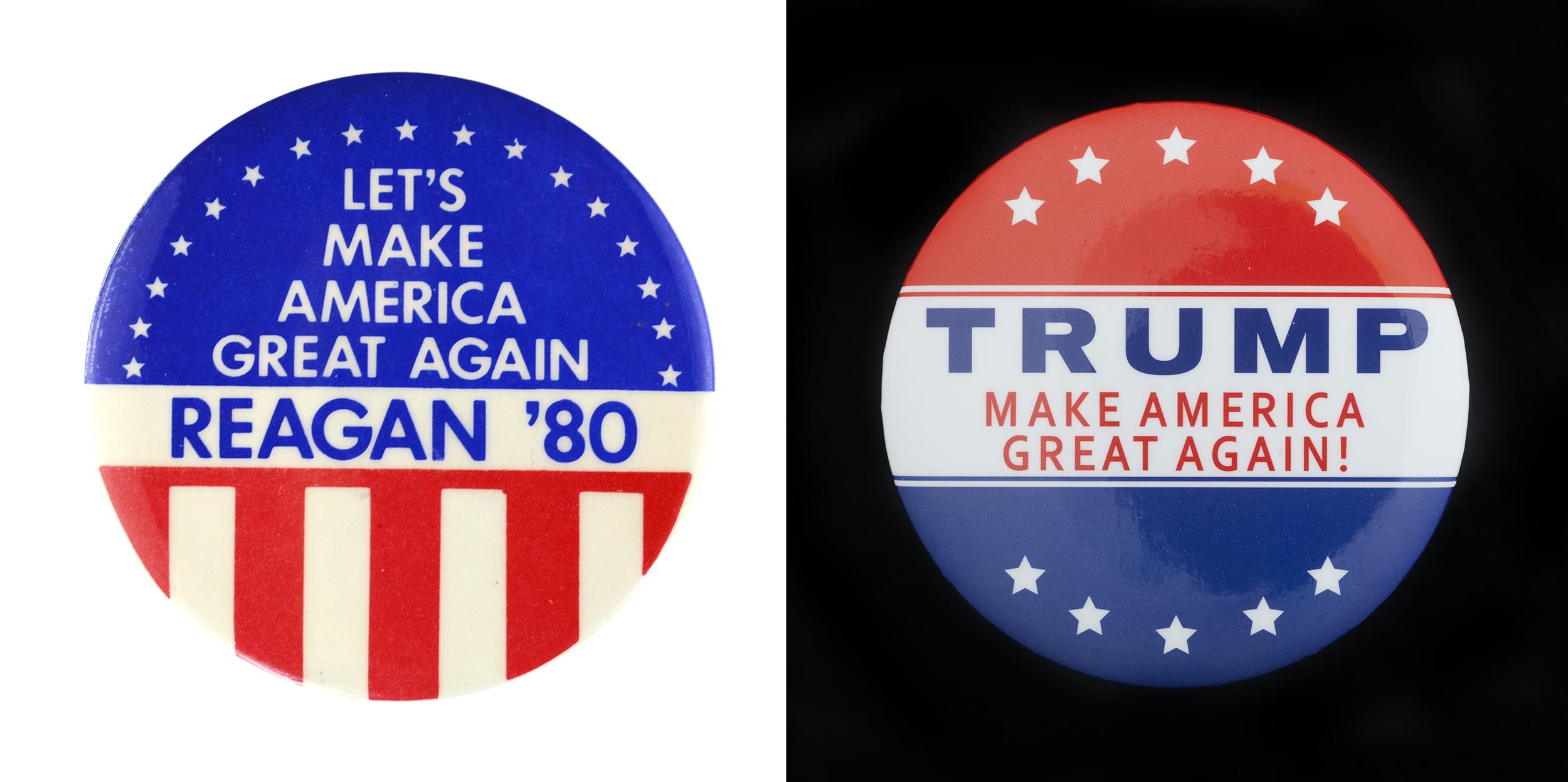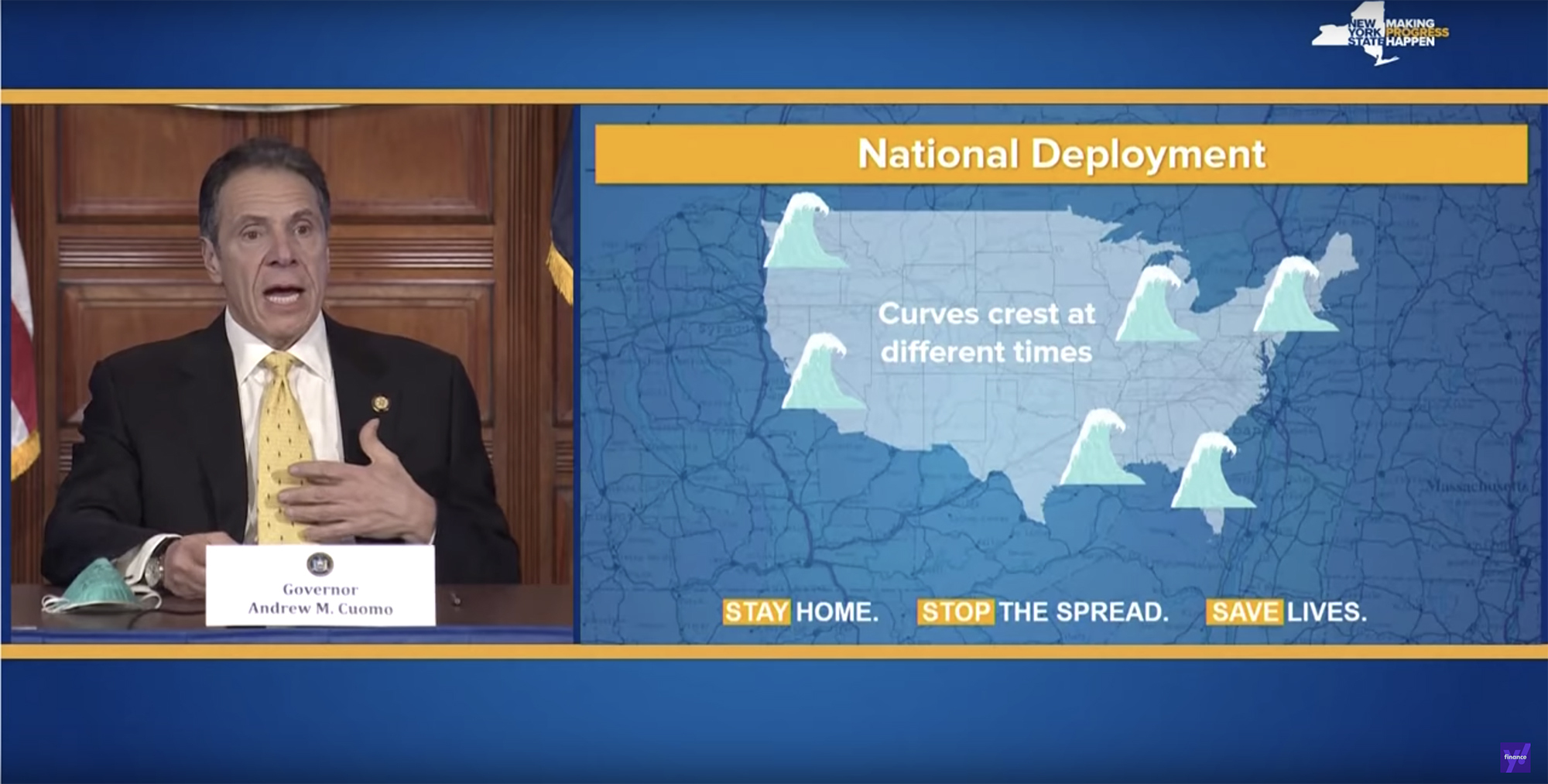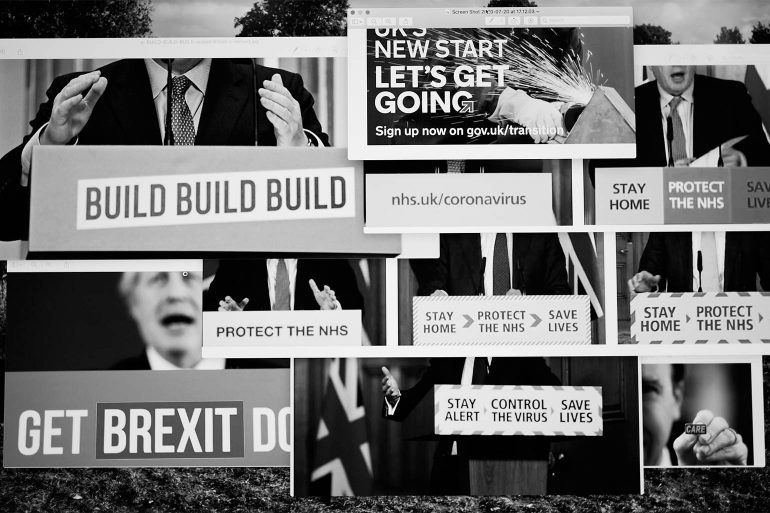I’ve never been a fan of the phrases that brand consultants insist on attaching to their strategies. For each bit of brand ‘purpose’ or soggy bit of storytelling I’d just rather ask ‘Why?’. Every time someone talks about ‘brand essence’ I immediately think of vanilla extract and cup-cakes.
And it’s not just branding messages that have this effect. Politicians have become equally obsessed with the words they choose and it’s driving me to distraction.
Here in the UK, from ‘Labour isn’t working’ to ‘The Magic Money Tree’, from ‘Take back control’ then ‘Get Brexit done’, right-wing UK politicians have been obsessed with staying ‘on-message’ for decades. In the States, Trump is so lazy he took Ronald Reagan’s ‘Let’s Make America Great Again’ mantra from 1980 and chopped the first word off it (perhaps a forward-thinking staffer could see problems down the line with that pesky apostrophe).

The approach across branding and politics seems to be this — distil all your carefully prepared messages down to four words or less, and then just repeat them, ad nauseum. If the last few days of a referendum call for some whopping great lies, well tell them, and hang the long-term consequences.
But now? It feels like something’s changed. Politics faces an adversary with the pandemic that’s difficult to scupper with a strapline. There’s a direct correlation between the world’s testosterone-fuelled right-wing leaders, the highest death rates, and the lowest approval ratings. (There’s an equally direct correlation between the best virus responses, and female leaders).
Honesty. Truth. Authenticity. Admission of failure and the suggestion that they could do better. Why are these words so hard for politicians — and brands — to adopt?
The spaff spouted by the populist princes now feels continually ‘spun’. We’re far more comforted by the approaches of Arden, Merkel and Sturgeon than we are by the blundering of Boris and Bolsonaro.
It’s got so bad that it’s best to assume you are being lied to so the occasional truths come as a pleasant surprise. Did anyone really believe that the UK government had ‘put a protective ring around care homes’? No, thought not.
— MATT LUCAS (@RealMattLucas) May 10, 2020
In the UK we’ve grown so accustomed to the mixed messages from No.10 that we just have to hope Matt Lucas (above) is on hand at all times because the government is in no hurry to make any sense, as evidenced by this article.
In the darkest days of the first wave it was no accident that millions started tuning in to New York State Governor Andrew Cuomo’s daily conferences and PowerPoint presentations. Amazingly, he told the truth, admitted failure and tried to do better.

Honesty. Truth. Authenticity. Admission of failure and the suggestion that they could do better. Why are these words so hard for politicians — and brands — to adopt?
The big brands reacted in an almost uniform way to the first wave by pumping out TV ads full of slow pans of empty streets, backed up by tinkly piano (ruthlessly collected in the clip collection above). TV scripts endlessly cycle through the three big ‘uns’ of our time — uncertain, unparalleled and unprecedented. Don’t worry everyone, we can just ‘come together’ and everything will be just fine.
But if that was the ‘holding pattern’ — what’s next? Like the politicians who have discovered that bluff and bluster no longer holds, brands are a little at sea. Ad agencies are desperately trying to appear ‘understanding’ on behalf of their clients and branding consultants have taken all that ‘essence’ and ‘purpose’ and er, repurposed it into something new.
My alma mater, Wolff Olins, merrily declared some weeks ago that brands only had 90 days to save themselves and we should all be creating ‘conscious’ brands. So, hang on, what were they before? Unconscious?
You can read endless thinkpieces about ‘reflecting the new normal in your coronavirus messaging’ – accompanied by library shots of protest marches — only a click away from their recent projects for cars and coffee. My alma mater, Wolff Olins, merrily declared some weeks ago that brands only had 90 days to save themselves and we should all be creating ‘conscious’ brands. So, hang on, what were they before? Unconscious?
The truth is that in an environment like this spin and overclaim feel wrong, and sometimes downright offensive. We’ve tumbled a few rungs down Maslow’s pyramid. We need support, family, security and shelter. We don’t need half-truths, obfuscation and back-to-back slogans. And we don’t need to go out and consume ‘stuff’ at the moment — partly because many of us have discovered that stuff ain’t so important after all.
So yes, it means sector after sector is looking hard at what they are saying, and wondering about a reboot.
We’ve been doing several education projects this year and it’s amazing how all the music conservatoires claim that THEY are the one who is world-leading. You’re left wondering — if everyone says they are the best, who IS the best?
Because we don’t need more sloganeering — we just need more common sense.
And you only need an afternoon reading the homepages of the planet’s universities to learn that everyone is both brilliant AND is doing world-leading research. Absolutely everyone.

So to be asked to create an online national academy as a direct reaction to lock-down was a relief — to do something that’s genuinely useful, and to help deliver 19 million incredibly valuable lessons. And we’re already having much more down-to-earth conversations with clients comparing what they were saying then, with what they should be saying next.
Will a post-virus world bring with it a new wave of truth-vending? Or will the previous wave of greenwashing make way for a new phase of corona-washing? Let’s hope not. We want a brave new wave of honest and pragmatic communications, from both politicians, and brands.
Because we don’t need more sloganeering — we just need more common sense.
***
Michael Johnson is one of the most influential designers in the world. He oversees the strategic and creative output at Johnson Banks, a design firm he founded in 1992. For over a decade, Johnson edited the Thought for the Week blog (now to be found on Johnson Banks website under Thoughts, under which, this article was first published). We have reproduced it here (both text and images) with his permission. You can read more of Johnson’s writings here.

